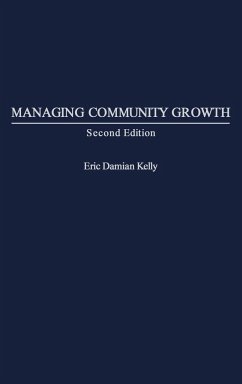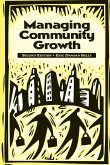Despite roughly thirty years of experience with growth management programs, which are basically land-use planning tools, most U.S. communities do not plan for how best to limit or manage rapid growth; in fact, most communities do not plan at all. In the absence of planning, land-use boards, regulators, and other governing bodies simply react to initiatives from the private sector. The result is predictably haphazard and does not allow communities to achieve such goals as protecting quality of life, attracting certain types of businesses while discouraging others, conserving wildlife or preserving open spaces, and so forth. In contrast, planning by managing growth can help a town or city achieve any number of goals. But it is a complex task. This book brings the benefit of state and local experiences with growth management to researchers, students, and particularly practitioners who seek guidance in these matters. Kelly provides a much-needed context from which any community can answer the following questions: Does growth management work? Is it appropriate for the community and the particular problems that it is trying to address? Is one type of growth management program more appropriate than another for our community? Will the program in question have undesirable (or desirable) side effects?What are the likely effects of adopting no growth management program at all? This work is invaluable for the citizen volunteers who sit on land-use boards, including planning and zoning commissions, conservation commissions, and inland wetlands agencies. In addition, it can aid mayors, city managers, and city councils in interviewing and selecting candidates for town planner.
Hinweis: Dieser Artikel kann nur an eine deutsche Lieferadresse ausgeliefert werden.
Hinweis: Dieser Artikel kann nur an eine deutsche Lieferadresse ausgeliefert werden.








